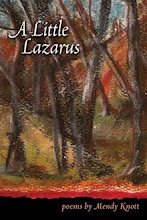
As writers, we are never going to be spared feelings. If we have a duty, perhaps it is that we observe the world's joy and sorrow, healing and great pain while keeping our hearts open as well as our other five senses. Once we have truly felt it, we use our gifts to interpret and express the feelings in words or art so that others may access it. Not everyone can express what they feel; not easily anyway. And it may not be easy for the writer or artist, either, but it's our job. I take this job seriously.
Think about how it feels when you are down and out, experiencing loss or sadness, or even a great joy (like falling in love) and you hear a song on the radio, or come across a poem or story that speaks to the very thing that at that moment is turning your world upside down. Doesn't that make you feel heard? Don't you, all of a sudden, feel accompanied? You know, then, that you are one of many others who has felt the way you feel now. It's human. Someone out there knows what we are going through and has been willing to share it so that we will feel celebrated if joyful, accompanied if alone.
And there you have it, my poets and writers, my sister and brother creatives, your raison d'etre, as it were. You can't achieve your purpose of expression and self-expression, however, unless you are willing to "go there." We must be ready to "feel for others" what they may be unwilling, or even incapable of, feeling for themselves. Did I say that this is not an easy job?
You may have noticed already that this level of vulnerability mixed with the more objective powers of observation needed to write well and to capture the emotions of a landscape as well as a funeral, are difficult talents to cultivate and balance. Writing empathetically requires both boundaries and a willingness to make our boundaries permeable so that emotions and observations can flow back and forth through the creative membrane. That is the courage of the artist.
So I wrote a poem to try and capture another's loss. Try this at home. All you have to do is to think about your own experiences, and the feelings will rise to the surface like magic.
On the Occasion of Your Loss
"I'm sorry for your loss."
It's a line you hear over and over
when you watch cop shows. The detectives,
suspicious, observant, always seem to mean,
suspicious, observant, always seem to mean,
"What did you do to them?
We know you didn't like them.
We know he was an asshole, and hurt you
a hundred different ways."
But what if he wasn't, and really,
she only hurt you a couple of ways that were,
it's true, hard with sharp edges, but nothing
compared to this...this...
"gone missing."
I am sorry for your loss
but can't bring myself to say a line
so eaten with suspicion, like a mop
the mice used for making homes,
and now the cottony top, though soft, can help no one.
Look, here is a box
of soups, a bar of soap,
some kleenex, some Bunny Grahams
for the kids.
There's still a lot of room in there,
but I ran out of ideas for how to help
this awful hurt–your heart all mouse-gnawed
and useless for loving–
the thing it was made to do;
its purpose half-destroyed.
I want to tell you how it grows back,
alive and beating,
whole, working,
able to do its job again.
But you won't believe me. Not now.
And who can blame you?
I wish I knew you better.
Maybe that's not the truth,
not right now anyway.
Because there's a bruise
darkening the first 2 ribs
below my own heart
from the battering you've taken
and I stutter when I try to say,
"I'm sorry for your loss."
Mendy Knott Oct. 2011


